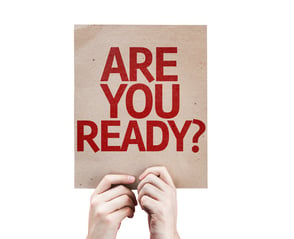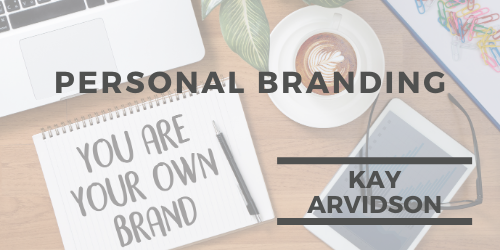Time and time again the millennial generation is said to be against face-to-face interaction. The newest generation to enter the job search is all about instant gratification, written communication, and the newest technology. So the idea of meeting with strangers in person becomes more of a discomfort for millennials than it was for previous generations.
The Oxford English Dictionary defines interview as a meeting of people face-to-face. This is basically the very bane of Generation Y’s existence. Now, we all know there are a number of different types of interviews, and not all follow this classic definition. Between phone, video, working, and the traditional kinds, it can be difficult to know how to prepare for an interview, especially when a weakness for direct contact is thrown in the mix. Interviewing, however, is not nearly as scary when you take the time to prepare for it. Here are 5 steps that can improve anyone and everyone’s interview skill.
1. Research, Research, Research
 Congratulations, you got an interview! The very first step you need to complete is research. Start out by looking into the business’s website. Learn it, memorize it, and take one tidbit of information you find and commit it to memory, then make sure to reference it during your interview. This could be a cause the company backs, or an award they have received. This says to your interviewer that you’ve done your homework. I suggest you do other research outside of this. A good place to start is Glassdoor. This website is filled with Company reviews, all written by current and former employees. This website also has interview questions, separated by job and company.
Congratulations, you got an interview! The very first step you need to complete is research. Start out by looking into the business’s website. Learn it, memorize it, and take one tidbit of information you find and commit it to memory, then make sure to reference it during your interview. This could be a cause the company backs, or an award they have received. This says to your interviewer that you’ve done your homework. I suggest you do other research outside of this. A good place to start is Glassdoor. This website is filled with Company reviews, all written by current and former employees. This website also has interview questions, separated by job and company.
2. Anticipate the Questions
When you have an idea of what your interviewer might ask you, they suddenly become a lot less intimidating. While you might not get a list of questions you know are going to be thrown your way, you can start by predicting what they might ask. A good source for this is Glassdoor, but there are also other resources that can help too. A lot of the time, anticipating isn’t incredibly difficult. Start by having at least two strengths and two weaknesses committed to memory. “What are your strengths and weaknesses?” can be one of the trickiest questions if you aren’t prepared, but it’ll be a breeze if you already know how you’re going to answer. Another key is to have your resume memorized and be able to elaborate and give examples on any position or skill you listed.
3. Practice Makes Perfect
 There are a lot of different ways to do this. If you can, doing a mock interview is the very best way to prepare.. But if you can’t or simply don’t have the time, practice answering your anticipated questions in a mirror. This way you can perfect your body language, as well as have an idea of what you wish to say.
There are a lot of different ways to do this. If you can, doing a mock interview is the very best way to prepare.. But if you can’t or simply don’t have the time, practice answering your anticipated questions in a mirror. This way you can perfect your body language, as well as have an idea of what you wish to say.
4. Prep for Success
Being prepared doesn’t just mean bringing a piece of paper and a pen, but also making sure you are dressed appropriately and have all the necessary materials with you. Unless otherwise specified, always dress in business formal for interviews. Make sure your clothing is clean, organized, and wrinkle free, so you present yourself in the best way possible. On the material side of things, always have extra copies of your resume with you. If you submitted anything else with your application, bring those too. This would be things like cover letters, references, or writing samples. A safe bet is five copies of each; you never know how many people will be interviewing you. Make sure to have extra paper and a pen too, just in case. It’s also important to come with questions for your interviewer. This shows you are prepared for the interview and invested and interested in the company and the job. Make sure to ask at least two or three questions at the end of the interview when they ask you, to show you’re prepared and leave an impression of being so.
5. The Follow-Up
 Send a short thank you note within 12 hours after the interview. This is just another way to leave a good impression, remind the interviewer of you again, and show your investment and interest in the position. This can be an email or a handwritten letter, whichever is easiest for you. (Note: following-up with your interviewer is difficult if you don’t have their contact info. Make sure to collect business cards or contact info before you leave, if you don’t already have it.) If you haven’t heard back within a week of the date discussed to hear their decision, it’s not a bad idea to follow-up again.
Send a short thank you note within 12 hours after the interview. This is just another way to leave a good impression, remind the interviewer of you again, and show your investment and interest in the position. This can be an email or a handwritten letter, whichever is easiest for you. (Note: following-up with your interviewer is difficult if you don’t have their contact info. Make sure to collect business cards or contact info before you leave, if you don’t already have it.) If you haven’t heard back within a week of the date discussed to hear their decision, it’s not a bad idea to follow-up again.
(For tips on how to write a thank you note, check out Sinikka Waugh’s blog “The Lost Art of Thank You Notes“)









